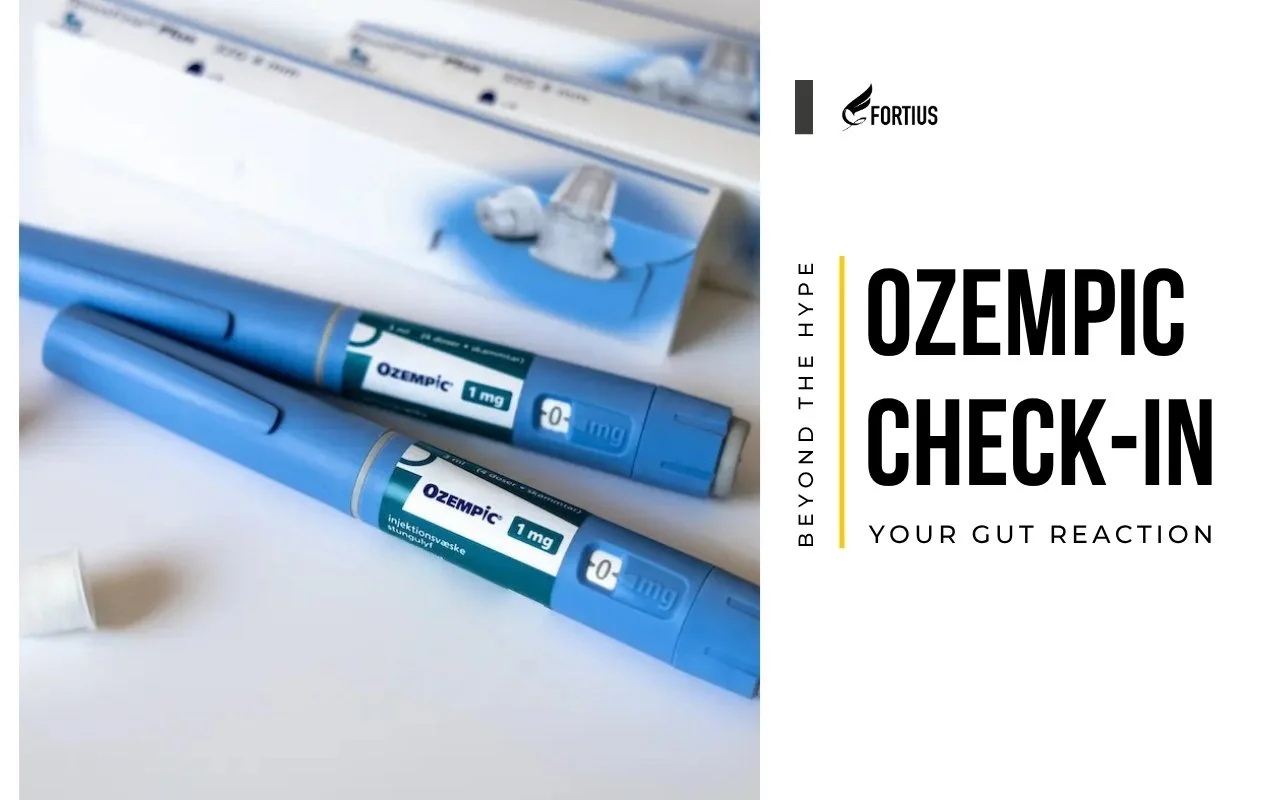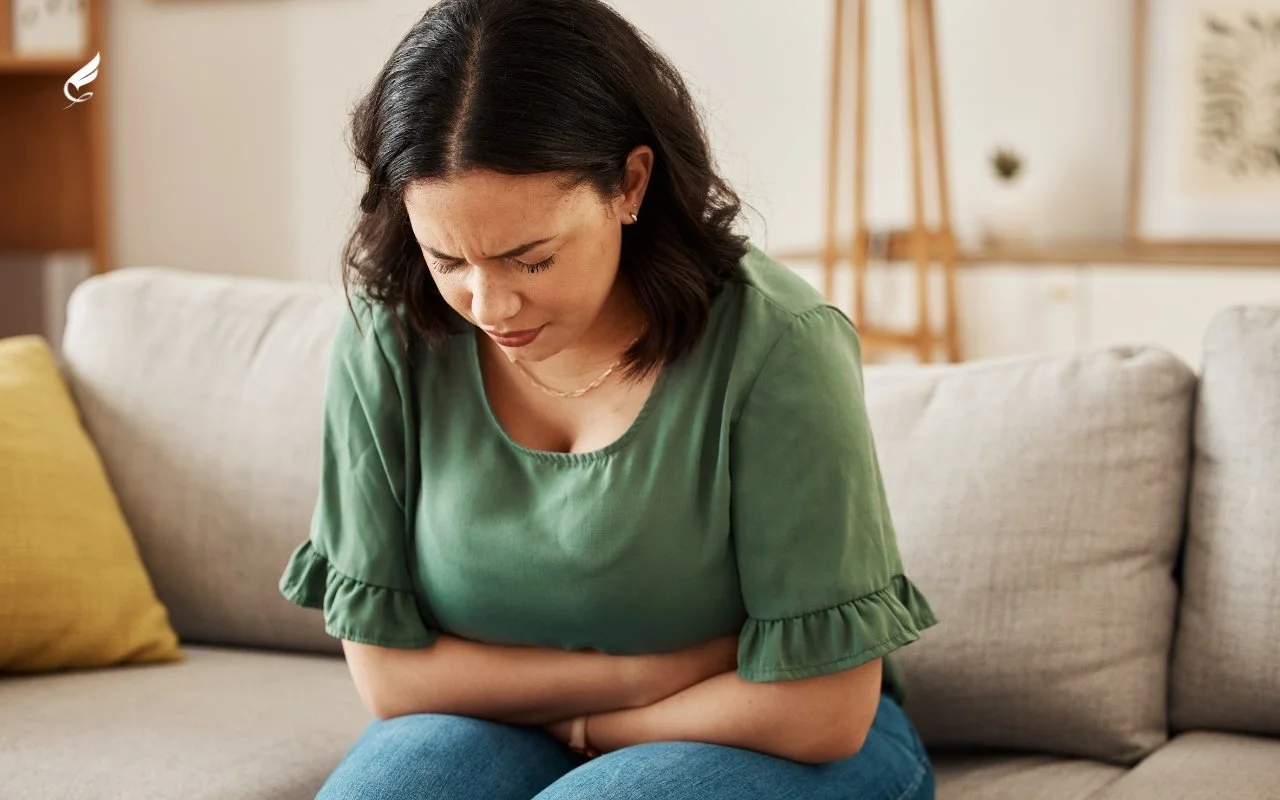How to Manage Nausea and Other Side Effects on Ozempic
Starting a GLP-1 medication like Ozempic or Mounjaro can be an effective step in your weight loss journey. This drug class is renowned for helping with weight management and improving blood sugar control. However, for some, the initial phase can come with uncomfortable digestive side effects, with nausea being one of the most commonly reported.
The good news is that for many patients, these side effects are temporary and can be managed with simple, strategic lifestyle adjustments. This guide provides practical tips to help you navigate this initial period, make your daily life more comfortable, and understand when to speak with your doctor.
(Disclaimer: This guide is for informational purposes only and is not a substitute for professional medical advice. The drug information contained herein is not exhaustive. Always speak with a licensed healthcare professional about any side effects you are experiencing.)
Understanding Why Side Effects Happen
Medications like Ozempic work by mimicking a natural hormone that, among other things, slows down gastric emptying—the rate at which food leaves your stomach. This process of slow digestion is a key reason Ozempic worksso well for weight loss; it helps you feel fuller for longer, leading to a decreased appetite.
However, as your digestive system adjusts to this change, it can sometimes lead to gastrointestinal side effects. Feelings of nausea, bloating, indigestion, or even stomach pain are the most common. These adverse effects often appear when you first take Ozempic or after a dosage increase, but they typically lessen over a few weeks as your body adapts.
Practical Tips for Managing Nausea and Discomfort
Managing these initial side effects of Ozempic is often about adjusting your daily habits. Here are some strategies that can help reduce nausea and improve your comfort.
1. Eat Smaller, More Frequent Meals
Instead of three large meals, try switching to five or six smaller, more frequent meals. A large volume of food in a slower-emptying stomach is a common trigger for feeling nauseous. Opting for smaller meals prevents the stomach from becoming overly full, improving gastrointestinal tolerability.
2. Avoid High-Fat and Greasy Foods
Fatty and greasy foods take longer to digest and can make feelings of indigestion or nausea worse. During your Ozempic treatment, try to avoid certain foods like fried items, rich sauces, and heavy desserts. Opt for leaner protein sources (like grilled chicken or fish) and easy to digest foods as part of a balanced diet.
3. Stay Hydrated Between Meals
It's vital to drink plenty of fluids, but timing is key. Sip on water, clear broths, or herbal teas (like ginger or peppermint) throughout the day. Avoid drinking large amounts of fluid with your meals, as this can add to the volume in your stomach and trigger discomfort.
4. Eat Slowly and Mindfully
Eat slowly and pay close attention to your body's fullness signals. Because of the decreased appetite, you may feel full much sooner than you used to. Stop eating as soon as you start to feel satisfied, not when you feel "stuffed."
5. Keep it Bland During Flare-ups
If you're having a particularly difficult day, stick to simple, bland foods. Items like crackers, toast, rice, or bananas are gentle on the stomach and can help you get through a bout of nausea until you feel better.
When to Contact Your Healthcare Provider
While mild gastrointestinal adverse events are common, it's important to know when to seek professional advice. Contact your healthcare provider if:
Your side effects are severe or prevent you from eating or drinking.
You experience persistent or severe abdominal pain, which could be a sign of more serious side effects.
You notice signs of low blood sugar (hypoglycemia), such as dizziness, shakiness, or confusion, especially if you are on other diabetes medications.
It is crucial to discuss your full medical history with your doctor, including any medical conditions or a personal or family history of thyroid cancer or Multiple Endocrine Neoplasia syndrome type 2. Also, inform them of all other medications you are taking to avoid potential drug interactions.
In rare, severe cases, side effects like gallbladder disease or bowel obstruction can occur. If you experience severe stomach area pain, persistent vomiting, fever, or yellowing of the skin/eyes, seek medical attention immediately. Likewise, any signs of serious allergic reactions, such as swelling of the face, lips, tongue, or trouble breathing, require urgent medical attention.
The Fortius Philosophy: Support Through Every Step
Navigating a new medication can be challenging, but you don't have to do it alone. The right coaching goes beyond just exercise and nutrition; it's about providing holistic support to help you manage the entire process.
At Fortius, we work with our clients to create a comprehensive lifestyle strategy that supports their medical journey. We help them manage side effects and build the sustainable habits that will ensure their rapid weight loss becomes long-term success, even after the medication is no longer needed.
If you are on a weight loss journey in Dubai and are looking for expert guidance and support, book a free consultation with the Fortius team today.
If you want to learn more about weight loss medications read our blog: The Ultimate Guide to Weight Loss Medications in Dubai (Ozempic, Mounjaro & More)







